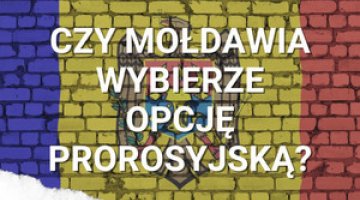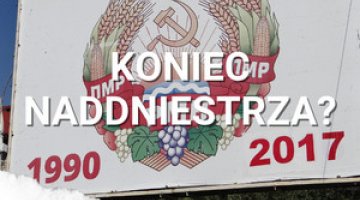Analyses
Moldova: pro-Russian forces score a victory in Gagauzia
On 22 May, the Court of Appeal in Comrat, the capital of the Gagauz Autonomy (GA) that forms part of Moldova, recognised the victory of Evghenia Guțul in the election for the GA’s başkan (head). Guțul represents the populist, pro-Russian Șor Party, led by the businessman and politician Ilan Șor who fled Moldova in 2019. She won 52.3 percent of the vote in the second round on 14 May, defeating her challenger Grigory Uzun, who was supported by the pro-Russian Party of Socialists of the Republic of Moldova. Guțul will take over as başkan from Irina Vlah, who has held the post since 2015 and is also linked to pro-Russian groups.
Commentary
- The court in Comrat ruled on the validity of the election results after Moldova’s Central Electoral Commission (a separate Gagauz electoral commission is responsible for elections in the GA) and the National Anti-Corruption Centre (CNA) had questioned the integrity of the electoral process and the vote itself. Back in early May, the CEC handed over documents to the Gagauz commission that alleged “violations of electoral legislation”, but most of them were ignored by the Gagauz authorities. A day after the vote the CEC reported at least eight violations of legislation on campaign financing, but the Gagauz commission decided to go ahead and recognise the results of the vote. Consequently, CNA agents entered its premises on 16 May and seized the voter lists as part of an investigation (launched in late April) into vote-buying and the illegal financing of one of the candidates by an “organised criminal group”.
- It seems obvious that the CNA was referring to associates of Ilan Șor when it referred to an “organised criminal group”. On 13 April, an appeals court sentenced him to 15 years’ imprisonment for his involvement in the so-called ‘theft of the century’, a scheme in which around $1 billion was siphoned out of Moldova’s banking sector in 2014. The government sees the Șor Party as one of the key internal threats to the country’s stability. Back on 13 February, President Maia Sandu said that Russia was planning to overthrow the government and could rely on the support of “domestic criminal organisations”; she named the Șor Party as one of these groups. For months, law enforcement and counterintelligence agencies have been looking into the party’s operations and the CNA has been investigating its illegal funding. The party’s offices are regularly inspected by security services, which confiscate any assets they find, and legal proceedings against people affiliated with the party are underway. Moreover, the party itself may soon be banned by the Constitutional Court. Șor and his supporters have used the government’s actions, even if these have some justification, to portray themselves as victims of the ‘anti-democratic regime of the Party of Action and Solidarity’ and to consolidate the anti-government opposition.
- Guțul’s victory will undoubtedly exacerbate the already uneasy relations between the GA and the pro-European PAS government supported by President Sandu. The new başkan, like the party she represents, has an extremely confrontational attitude towards the government in Chișinău. She has criticised it for severing relations with Russia, and has pledged to strengthen Gagauzia’s ties to Moscow, including by opening an official representative office for the GA in the Russian capital. Officials from the Șor Party have also pledged to hold a referendum in Gagauzia on Moldova’s foreign policy orientation. A similar vote, which Chisinau declared illegal, was held there in 2014. There is no doubt that the actions of the Șor Party and Guțul will be supported by the Russian government and media.
- The election results in Gagauzia, while unsurprising (the region has traditionally been strongly pro-Russian and favours politicians who call for closer relations with Moscow), not only pose a political challenge for the pro-Western government in Chisinau, but may also affect its image. In recent months, the PAS government has faced a marked decline in popularity, mainly due to the economic situation (rising commodity, energy and food prices). Although the latest polls from May suggest that this trend has stopped, support for PAS stands at around 25–30%, while the pro-Russian socialists, communists and the Șor Party could win a combined total of around 30–35% of the vote. Moreover, PAS is likely to lose the contest for the mayoralty of Chișinău, which will take place during the local elections in October. Ion Ceban, who is nominally pro-European but is in fact linked to pro-Russian circles, is highly likely to retain this position. The government’s image has also been undermined by the regular anti-government protests that the Șor Party has staged since last September; the biggest of these drew around 10,000 participants.




